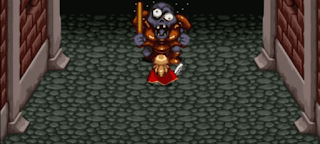Japanese Role-Playing Games (JRPGs) have been a staple in the gaming community for decades. Renowned for their intricate narratives and detailed world-building, they often offer a unique experience that draws heavily from the Japanese culture. However, the barrier to entry for many Western gamers has often been a combination of language challenges and misconceptions about the genre.
Growing up, many Western gamers might have disregarded JRPGs as tedious and text-heavy, preferring action-packed titles that demand less patience. Yet, as Jason Brookes insightfully pointed out in 'Super Play Magazine', there exists a vast cultural difference between Japanese and Western players. The former places significant emphasis on storytelling, with reading being a fundamental part of their societal makeup.
Today, games like 'Final Fantasy' and 'Dragon Quest' might not be as appealing to the younger demographic in the West as titles like 'Call of Duty' or 'Grand Theft Auto'. Yet, accessibility to JRPGs has improved remarkably. The rise of online platforms like eBay has bridged the gap, allowing avid gamers to experience the games they missed out on in their younger days. https://www.game24hours.com/2023/07/eek-cat.html
Despite these advancements, the overarching issue remains – understanding the narrative. A text-heavy game in Japanese poses a unique challenge, especially when attempting to understand a storyline reliant on in-game dialogues.
The game 'Elfaria' serves as an interesting case study. On the surface, it may appear as a simple, stripped-back JRPG, but for a non-Japanese speaker, the gameplay can be frustrating and limiting. Sara Ruehlman's detailed interpretation of the game's introductory sequence showcases the vast disparity between what a Japanese reader comprehends and a Westerner's interpretation.
Playing 'Elfaria' brings forth the stark realization that understanding the narrative is vital for the complete experience of a JRPG. But this isn’t just about 'Elfaria'. The appeal of games like 'Parodius' and 'Cotton 100%' might not be hampered by the language barrier because of their inherent familiarity. Yet, when it comes to JRPGs, which are inherently story-driven, the experience is unequivocally different without understanding the narrative.
However, it's crucial to remember that, like any other genre, not all JRPGs are masterpieces. Just as there are outstanding Western games, there are mediocre ones. It's essential not to judge the entire genre based on a few unremarkable titles.
While 'Elfaria' might not be the best representation of what JRPGs offer, it does highlight the importance of translations for a global audience. As the gaming world becomes more interconnected, understanding and appreciating different cultures through translated games can only enrich our experiences.

Comments
Post a Comment